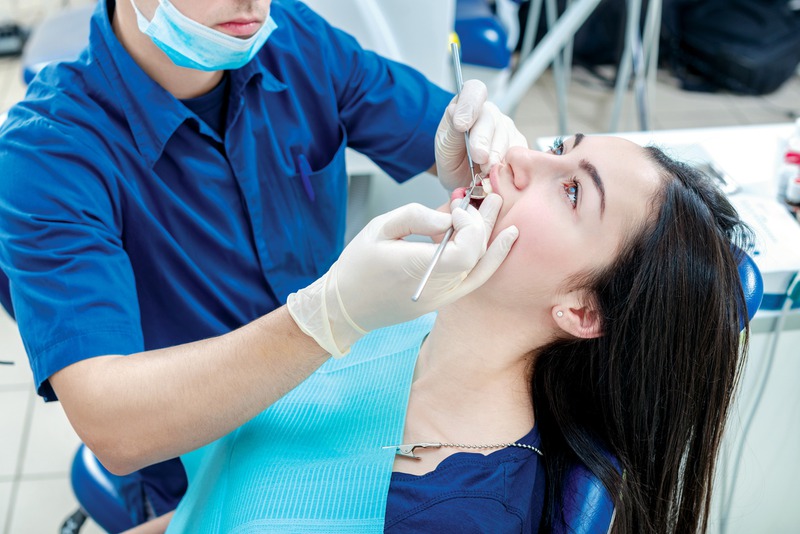Dental phobia is more common than you might think and affects countless individuals worldwide. It’s not just about avoiding the dentist; it’s an intense fear that can prevent people from getting necessary dental care. Understanding this fear and learning how to manage it can be life-changing. In this article, we’ll explore practical advice and approaches for overcoming dental phobia, making dental visits easier and more manageable. Whether your anxiety is mild or severe, this guide will offer helpful insights to ease your fears and improve your dental health journey. Let’s get started on this transformative path together.
Advice for Managing Dental Phobia
If you’re grappling with dental phobia, calming your nerves before and during a dental visit can help. Here are some strategies to consider:
-
Communicate With Your Dentist: Let your dentist know about your fears. This will help them adjust their approach to make you more comfortable.
-
Start Small: Begin with simple check-ups or cleanings to build your confidence gradually.
-
Bring a Friend: Having someone you trust by your side can provide emotional support during the appointment.
-
Practice Relaxation Techniques: Deep breathing exercises or meditation can help calm your nerves before visiting the dentist.
-
Use Distractions: Listening to music or an audiobook can take your mind off the procedures.
Communication Is Key
Effective communication with your dentist can significantly ease your anxiety. Dentists are trained to deal with anxious patients and will have techniques to help you relax. Discussing any specific worries or past unpleasant experiences can help your dentist understand your situation better. Good communication can also lead to mutual understanding and a sense of partnership in managing your dental health.
Relaxation Techniques and Their Benefits
Relaxation techniques can be incredibly beneficial if you’re dealing with dental phobia. Techniques like guided imagery, progressive muscle relaxation, and controlled breathing can lower stress levels. These methods can make a significant difference if practiced regularly, especially before and during dental visits. The more you practice, the more naturally they come to you in a high-stress situation.
Gradual Exposure to Dental Appointments
If your phobia is severe, gradual exposure to dental settings can help desensitize you over time. Start with short visits where no procedures are done, allowing you to familiarize yourself with the environment. This approach can make future visits less daunting. Taking small steps can lead to long-term gains in comfort and confidence.
Positive Reinforcement
Rewarding yourself after a successful dental visit can create positive associations with dental care. It could be something as simple as treating yourself to your favorite activity or buying something you’ve wanted. Positive reinforcement can motivate you to take charge of your dental health without associating it with fear.
Professional Support
If standard techniques are not easing your fear, seeking professional psychological support might be beneficial. Cognitive-behavioral therapy (CBT) is particularly effective in treating dental phobia. A therapist can provide strategies to change the way you think about dental visits, reducing fear and anxiety.
-
Cognitive-Behavioral Therapy: Identifies and changes negative thought patterns.
-
Engage in Online Support Groups: Sharing experiences with others who face similar challenges.
-
Hypnotherapy: Effective for some in reducing dental fear through suggestion and relaxation.
In some places, dental offices offer specialized care and environments to cater to anxious patients. Opting for places that offer comfort-focused care can make a big difference. Take a dental office in Atglen, PA, for instance, they adapt their care to suit every individual’s fear level, making visits less stressful and more positive.
During the appointment itself, dentists often recommend sedation options for those with profound fears. Depending on your comfort level, sedation can range from mild, like nitrous oxide (laughing gas), to more moderate forms, such as oral sedation. Discuss these options with your dentist to understand what works best for you. The most important thing is feeling at ease and understood in a space that might otherwise feel intimidating.
Regular Check-Ups
Skipping dental appointments can lead to bigger issues down the line. Routine check-ups help catch problems early, often making treatments quicker and less uncomfortable. Regular appointments can also help build a better relationship with your dentist, reducing anxiety over time. By maintaining a consistent schedule, dental visits might soon become a routine part of your health care.
Maintaining dental hygiene is not only about feeling fresh but also staying healthy. Scheduled dental cleaning Lancaster County, helps prevent major issues and keep your teeth and gums in optimal health. These appointments are pivotal in preserving your oral health and easing any dental procedure anxieties over time.
Use of Modern Dental Technology
Modern dental technology has transformed the way procedures are performed. From laser treatments to digital x-rays, these advancements minimize discomfort and shorten recovery times. Dentists using up-to-date technology can perform interventions that are quicker and less invasive, ensuring a smoother experience for patients with phobia concerns. Don’t hesitate to inquire about the technology being used at your dental practice; knowing what to expect can ease your mind about treatment processes.
Understanding the materials used for fillings is also crucial in alleviating fears associated with dental procedures. Options, such as natural-colored composite fillings in Lancaster County, blend seamlessly with the natural teeth color, ensuring a comfortable and less anxiety-inducing experience. This material not only looks more natural but also requires less drilling, which can often be the source of anxiety in the dental chair.
Building a Strong Relationship With Your Dentist
Building a relationship with your dentist can ease dental phobia significantly. A dentist who respects your concerns and explains procedures can make you feel at ease. Trust and transparency are fundamental aspects of any healthcare relationship and are crucial when tackling anxiety. The more comfortable you feel with your dentist, the more manageable your
Creating a Comfortable Dental Office Atmosphere
Some dental practices create an atmosphere designed specifically for those suffering from dental phobia. These offices may offer amenities such as calming music, aromatherapy, or comfortable seating to create a more pleasant experience. Good environments make a difference and can shift your perception of a typically daunting visit. You may even start seeing your appointments as opportunities to unwind rather than something to fear.
Final Thoughts
Dealing with dental phobia can be challenging, but it’s not insurmountable. By using techniques like open communication, gradual exposure, and building solid relationships with dental professionals, overcoming these fears is possible. The journey to eliminating dental anxiety is unique to each person, but with the right guidance and resources, dental visits can move from being a source of anxiety to a manageable task. Remember that every positive step you take is progress toward a more comfortable dental health experience. With practice, patience, and the right support, you can conquer your dental phobia.

